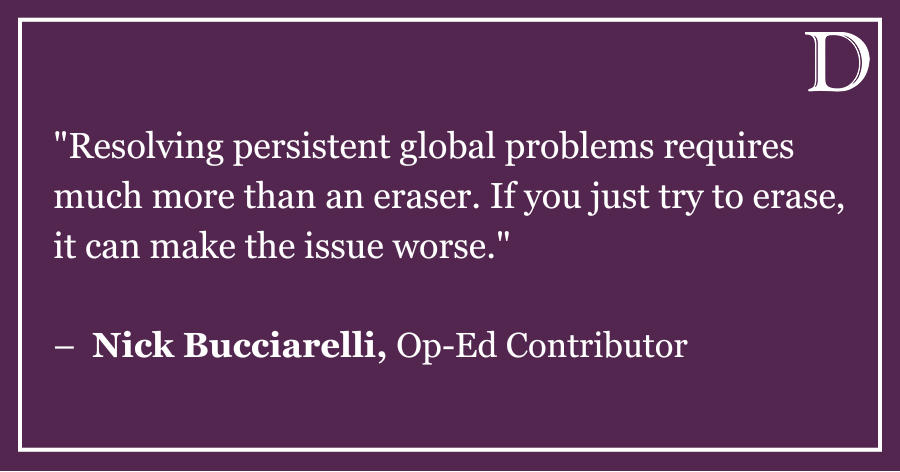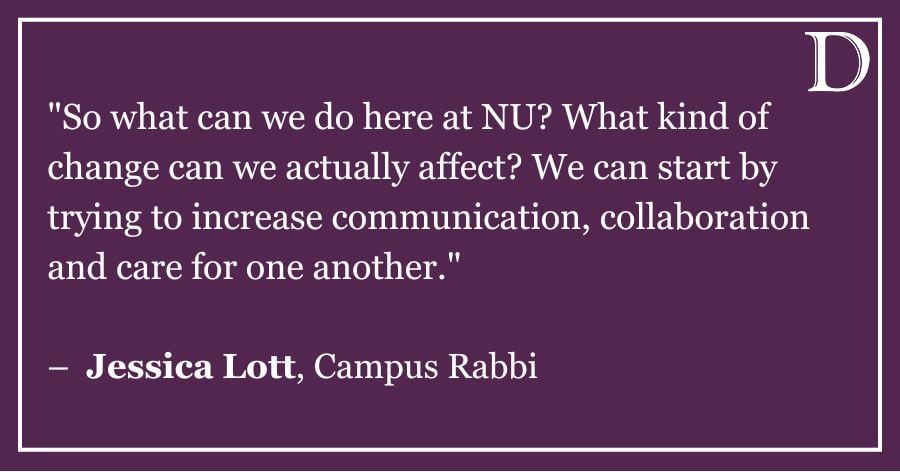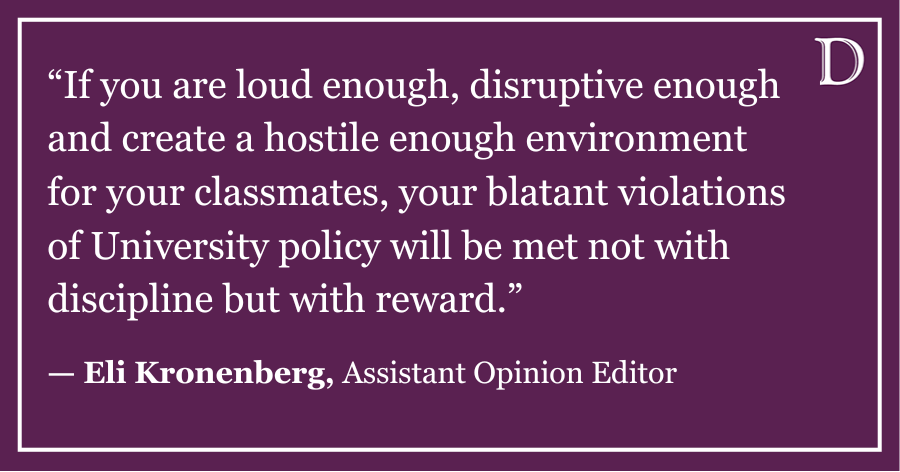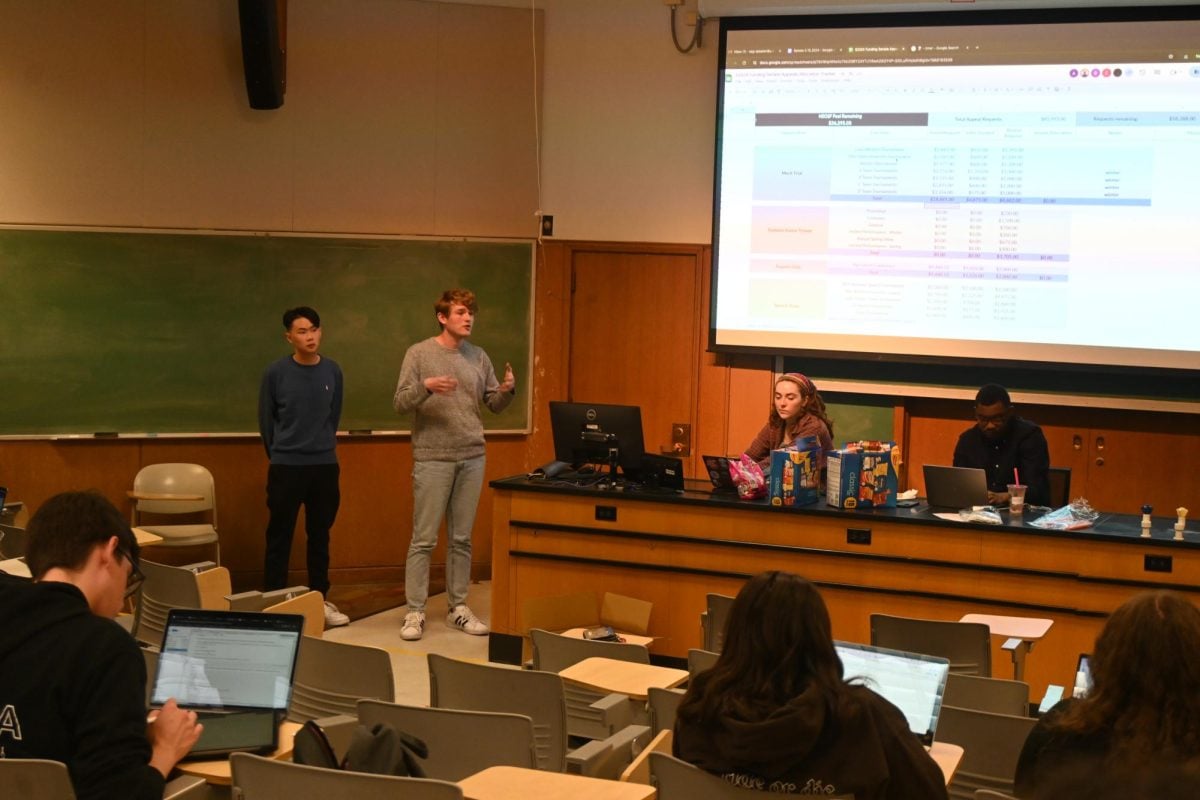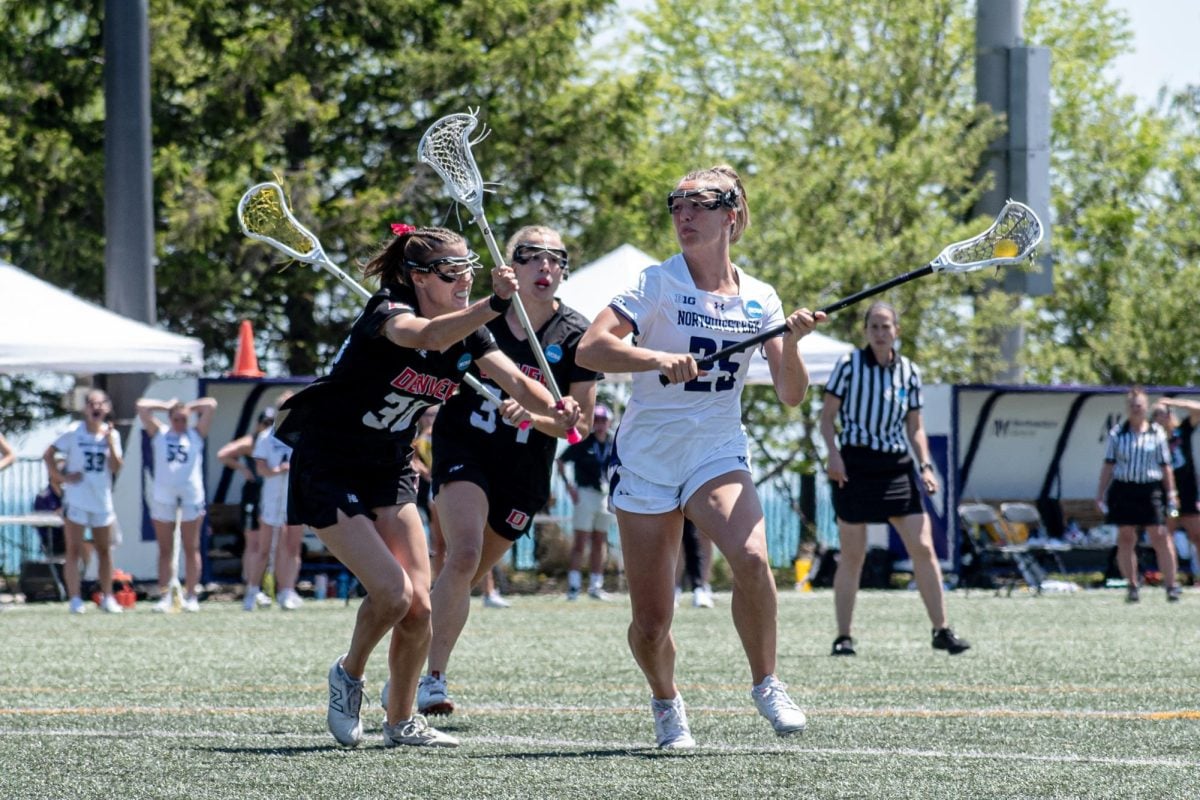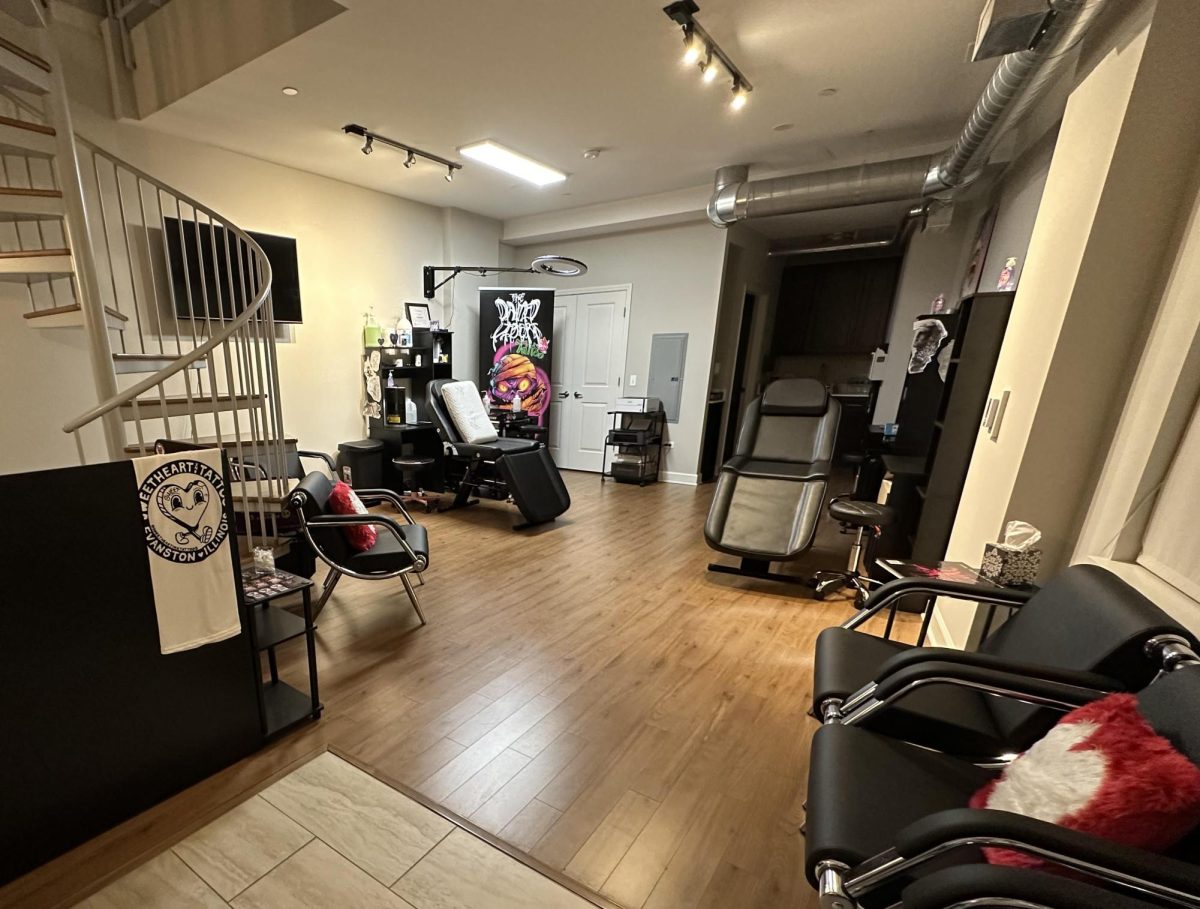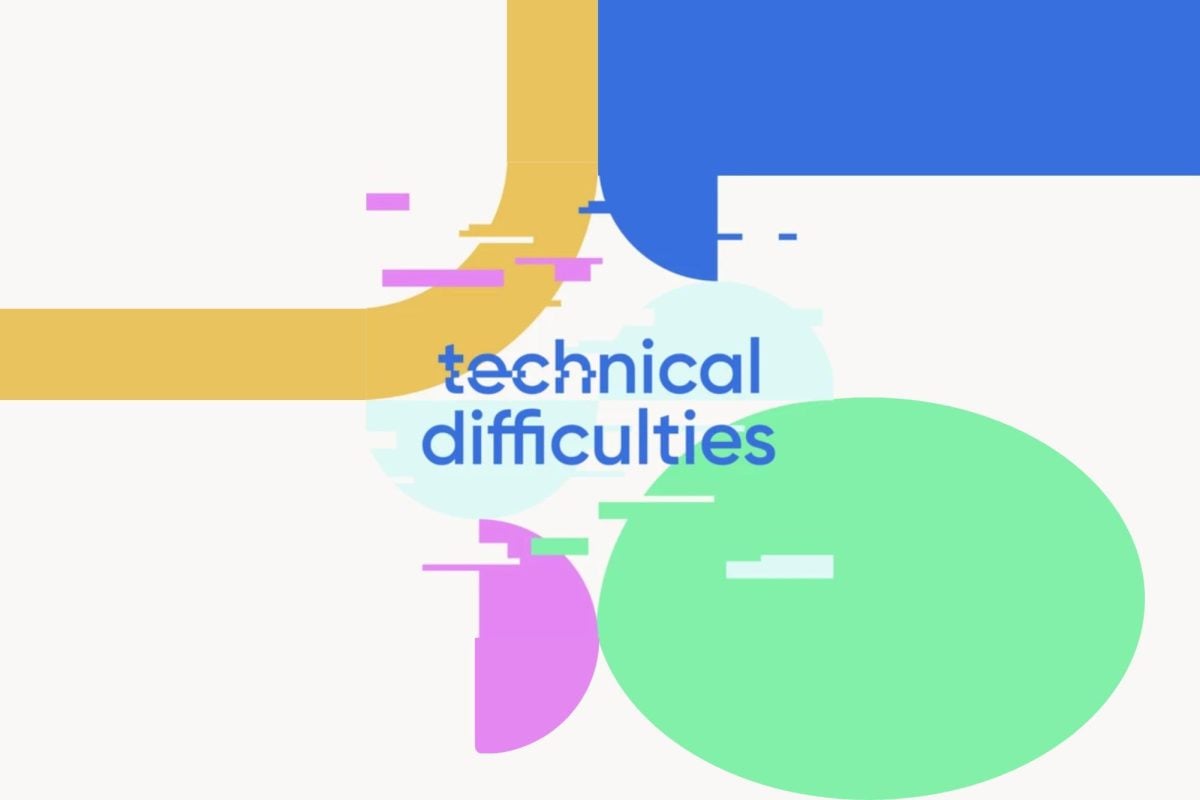I had a year of Zoom under my belt. I knew little about computer science. I had no idea how to navigate the Technological Institute (but who does?). I finally felt ready for my first in-person lecture. I took a deep breath, awaiting the professor’s entrance.
In fall 2021, I had high hopes for enthusiasm from my classmates. Hadn’t we been gearing up to be back in the classroom? Yet once we got there, we fell into the same old norms: disengagement and minimal participation.
Since that fall, the worst of these norms has returned to the lecture hall: strict attendance policies. The flexibility of recorded lectures and accommodations for illness has reverted to requiring attendance and documentation above all else.
Sure, guaranteed audiences can spark energy, but seeking that through stringent requirements distances students from enjoying class in the first place. This is a huge departure from the expansions of digital attendance options from 2020 to 2022.
Why abandon the recording technology this university has invested millions of dollars into? Why leave students behind when inevitable conflicts arise? Why choose punishing policies when respectful, kind alternatives exist?
It isn’t just about grading gripes. This matter extends to the broader accessibility issues at NU, including the few available opportunities to seek it and the lack of sympathy extended to students in times of need.
University channels let instructors excuse absences at their discretion and encourage strict documentation. Attendance accommodations with AccessibleNU are rare and limited. I would know; I’ve sought them to address mental illness. For students, reading the attendance section of a new syllabus might as well be a roll of the dice.
I find this variance unacceptable when equitable options are available.
As an abled ally, I call on NU to implement universal flexible attendance policies for lecture classes that accommodate disability, make use of digital tools and create a culture of mutual respect in the classroom.
Stop grading attendance
It’s time to rethink our valuation of attendance. NU should eliminate attendance in and of itself as a weighted portion of final grades.
Engagement is fundamental in any learning community, but being present without engagement can be arguably worse than absence, especially when a student is distracted beyond their control due to physical pain or illness.
Directly grading attendance compels students to devalue their health and safety.
It’s a continuation of the mindset preached from kindergarten on that school should come before well-being (did anyone else crave those perfect attendance awards?). Forcing unwilling participants into a learning environment contradicts the communal nature of classrooms and undermines student autonomy.
However, I don’t recommend stopping attendance-taking altogether. I instead encourage alternate approaches to the concept that center student growth and learning rather than policing student behavior.
Standardize excused absences
With attendance must come absence and its excusal. The excused absence process urgently needs standardization.
Excusing an absence is clearly awkward for both instructors and students. Disclosing private information creates a position of guilt, as though you must be forgiven for experiencing hardship. For instructors, having to approve absences increases the power differential from instructor to student.
To reduce the stress on both parties, I suggest a questionnaire-based solution. A standard form requesting the basic details of an absence, with the option of providing more or following up, has huge potential to smooth this process. Having a home base for this information, instead of cluttered email inboxes, is a win for everyone.
Strategize to include all learners
With attendance ungraded and absences easily excused, what will keep students participating? An excellent model endorsed by Northwestern is Universal Design for Learning.
UDL uses neuroscientific methods to create accessible learning options. Its curricular strategy seeks to “change the design of the environment rather than to change the learner,” a crucial goal as college students establish independence.
One of UDL’s strongest recommendations is consistently available alternatives to accessing information, like video recordings and transcriptions.
Implementing these options may seem daunting, but many tools are already in hand. NU continues to license digital tools like Zoom and Panopto. Four hundred NU classrooms will be equipped with recording technology by year’s end.
This change opens the doors for disabled students to partake in varied ways. Offering the tool first to the full classroom reduces the burden on disabled students, for whom continual self-advocacy in the shadow of stubborn university systems can be an endless exhaustion.
Stop enforcing conformity
Attendance requirements reflect how schools seek standardization. The U.S. education system is structured to enforce silence, stillness, obedience and other related traits. Punishments for disobedience disproportionately impact disabled students, who are restrained and secluded at much higher rates in K-12 schools.
Furthermore, truancy legislation pushes BIPOC students disproportionately into juvenile detention systems and the school-to-prison pipeline.
The repercussions of these punitive policies linger at the college level. Just because students choose to enroll in higher education does not mean strict policies are justified. No matter the age, it’s impossible to leave your life at the door of the classroom.
This is especially true when considering disability as socially constructed. In many cases, it’s interaction with problematic systems that prevents people with disabilities from living their lives, not just their personal conditions. Disability activists’ continual fight for equal civil rights points to the fact that impairments don’t reflect anyone’s innate value.
To encounter these complex models of disabled life, we must care about the testimony of disabled people. We must combat the devaluation of their experiences that is explicit to the education system. In perpetuating this harm, NU would have me discount my disabled friends, and I refuse to do so.
Seek a better future
Institutional conservatism is unsurprising at NU, and the precedent for policing attendance is as long as the history of universities. Given the evidence that change is possible, I choose to be optimistic. This moneyed administration, replete with digital resources, can easily direct attention towards policies students often dread.
At a top-10 university, I’m sure I’m not alone in wanting more than attendance. I’m a curious person who seeks out learning experiences I care about. Some days, that learning happens best in the classroom, but alternatives need to be available on the days I can’t get out of bed.
I will not accept the implied standard strict attendance sets. I am more than my physical presence, and so are you. Even on my worst days, I would rather be a valued contributor than another face in the crowd.
Max Sullivan is a Medill third-year. Ze can be contacted at [email protected]. If you would like to respond publicly to this op-ed, send a Letter to the Editor to [email protected]. The views expressed in this piece do not necessarily reflect the views of all staff members of The Daily Northwestern.


